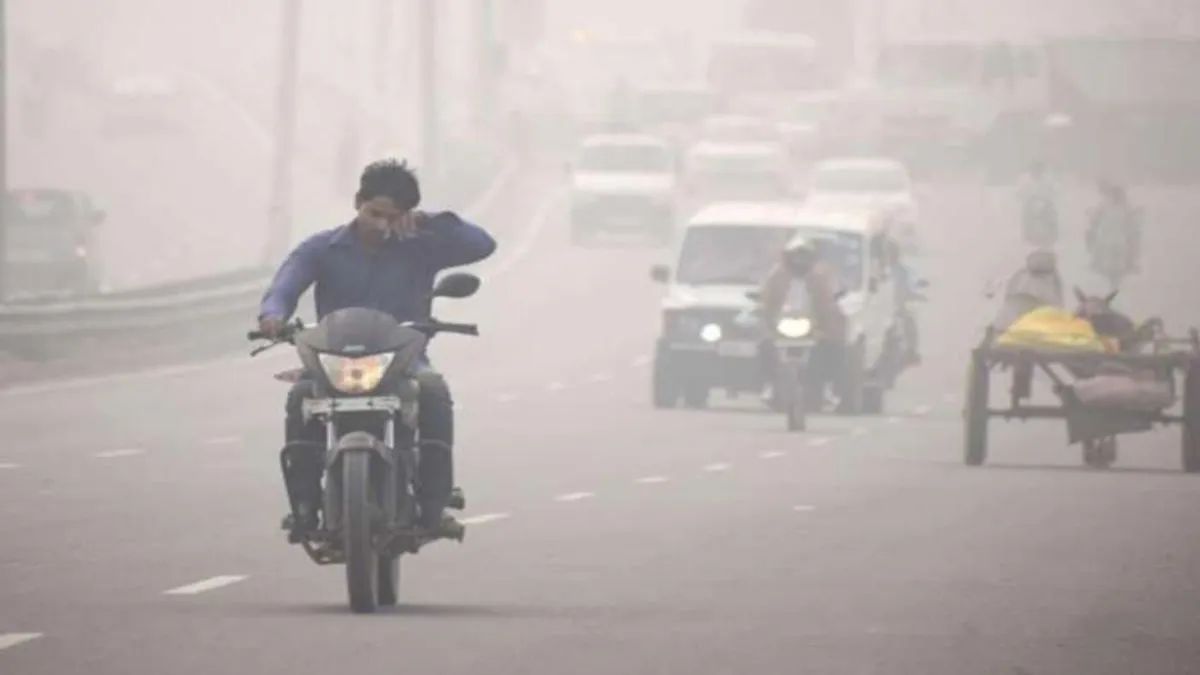Delhi, the bustling heart of India, is grappling with a dire air pollution crisis. Recently, it earned the unenviable sixth position among the ten most polluted cities in the world. With an alarming Air Quality Index (AQI) of 455, the lives of approximately four crore residents in the Delhi-NCR region have been choked by poisonous air. The hazardous implications of this air pollution on human health are a matter of grave concern.
The Immediate Health Impact
The initial symptoms of Delhi’s hazardous air quality are evident in residents, causing discomfort with burning sensations in the eyes and difficulty in breathing. But experts are sounding the alarm on more severe and long-term health consequences, including an increased risk of cancer.
Air quality across Delhi continues to be in the ‘Severe’ category as per the Central Pollution Control Board (CPCB).
AQI in RK Puram at 466, in ITO at 402, in Patparganj at 471 and in New Moti Bagh at 488 pic.twitter.com/oBrbdeLqdp
---Advertisement---— ANI (@ANI) November 6, 2023
Dr. Piyush Ranjan, Additional Professor in the Department of Medicine at AIIMS, elaborates on the grave health risks. He points to scientific evidence linking air pollution to various types of cancer. Pollution inflicts severe damage on the respiratory tract, and it doesn’t stop there. The perils extend to an elevated risk of heart attacks, brain strokes, and even conditions like arthritis.
Protecting the Vulnerable
It’s not just adults who are at risk. Pollution poses a significant threat to unborn children. Dr Ranjan advises pregnant women to be especially cautious. Air pollution can impair the development of the baby’s brain and heart. Without proper precautions, it can have harmful consequences for individuals of all age groups.
Lungs Under Siege
The recent surge in air pollution has pushed Delhi’s air quality into perilous territory. For healthy individuals, an AQI below 50 is the desired standard. However, the AQI in the region has soared beyond 450, marking a dangerous level. This poses an immediate threat to those with pre-existing lung-related conditions, potentially increasing the risk of lung cancer.
The battle against air pollution in Delhi is not just a matter of aesthetics; it is a matter of life and death. With the AQI soaring to catastrophic levels, it is imperative for the government, local authorities, and citizens to take proactive measures to mitigate the crisis. The health hazards, including an elevated risk of cancer, heart attacks, brain strokes, and other life-altering conditions, should be a stark reminder of the pressing need to address the issue urgently.
As the city grapples with this looming threat, awareness and collective action become essential. Initiatives to reduce pollution levels, promote green alternatives, and adopt stringent measures are the need of the hour. The residents of Delhi deserve to breathe clean air, and it is a shared responsibility to ensure that they do.
Also Read: Tragedy Strikes In Dausa, Rajasthan: Four Killed In Horrific Bus Accident













